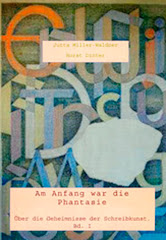Did und Präsens ist die Norm, nach did steht nie die Past Tense form
Yesterday, ago und last erfordern stets das Simple Past – Yesterday, ago and last always want the Simple Past
Never, ever, yet, so far, present perfect ist doch klar!
He, she, it - ein s muss mit. – He, she, it - No s is shit
Unterscheidung von much und many: Matsch kann man nicht zählen, Manni (=Manfred) aber schon
Eselsbrücke zur Satzstellung im englischen Satz:
S P O M P R (präg sich gut ein, weil es so ungewöhnliches ist) –> Subject Predicate Object Manner Place Time
If and will is a kill
If und would - Satz kaputt oder Would macht den If-Satz kaputt.
If and would is no good.
Im if-Satz wird nicht ge-would-st
Never, never, never, put if and would together
Wenn „wenn“ gleich „falls“ dann „if"
Ein Klassiker sind diese drei Merksätze:
Auf der Reise nach Loch Ness könnte man Nessy treffen - also:
If I see Nessy, I will take a photo. (Futur I als Indikativ – Möglichkeit nur am "if" erkennbar)
If I saw Nessy, I would take a photo. (Möglichkeitsform in der Gegenwart)
If I had seen Nessy, I would have taken a photo. (Möglichkeitsform im Plusquamperfekt)
Schreibweise von Wörtern mit ei und ie: I before e (except after c) if the pronunciation is ee
Ausnahme: Sheila, weir, weird, seize: A weird thought seized Sheila by the weir
für necessary: Every shirt has two sleeves and one collar
Neuer Beitrag
vor 6 Jahren





















Keine Kommentare:
Kommentar veröffentlichen